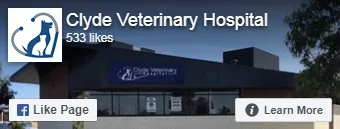LASER THERAPY
Using laser therapy to treat pets has increased over the last several years, as the evidence of its therapeutic benefit for small animals has grown. There are a number of different benefits and uses that a vet can find for laser therapy, including effectively reducing the pain and inflammation your pet may be experiencing due to an acute or chronic condition.
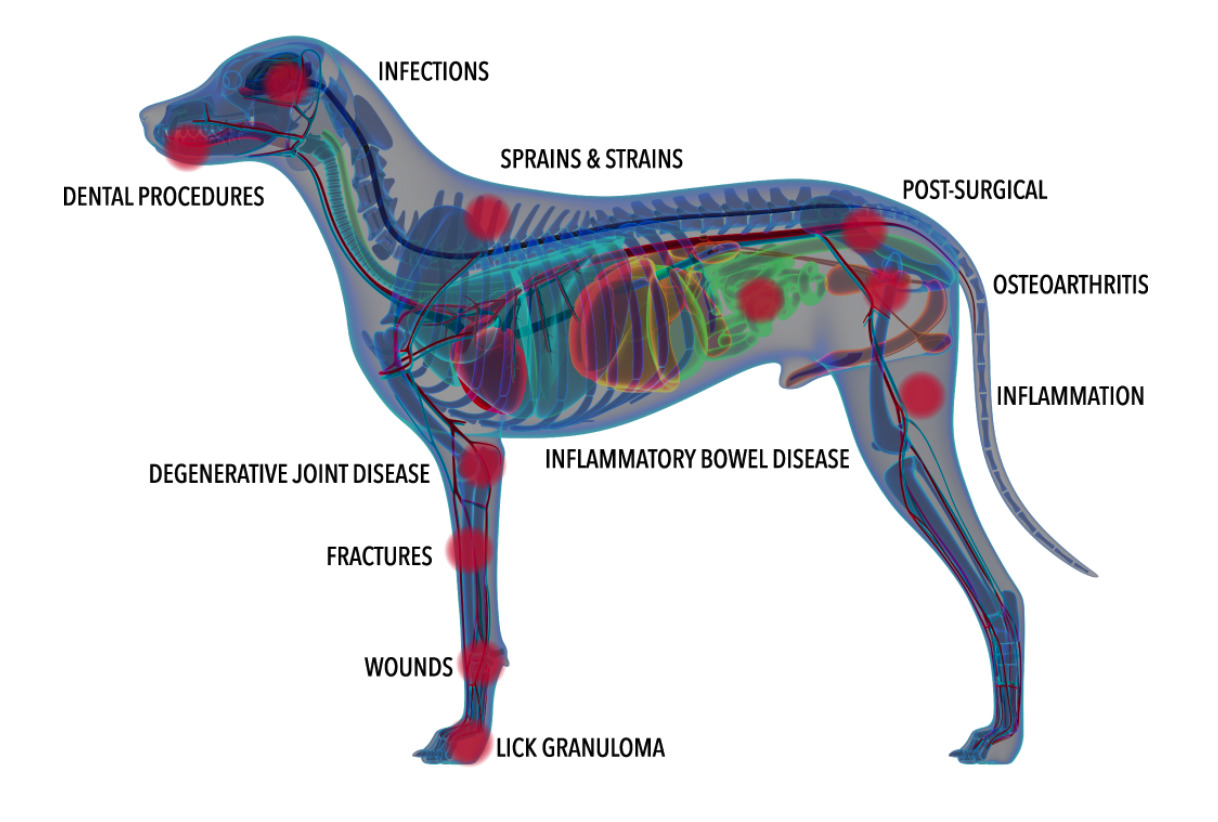
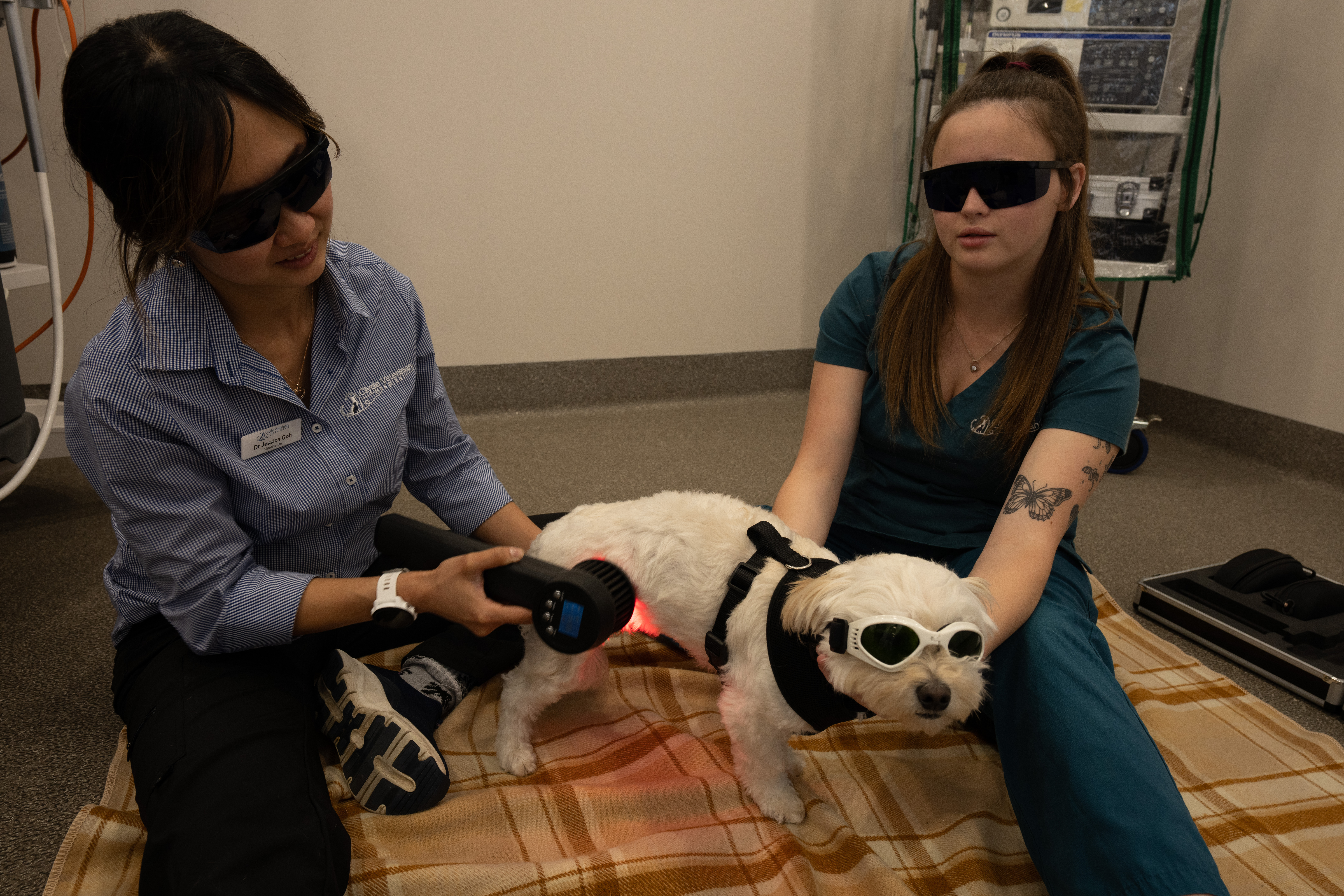
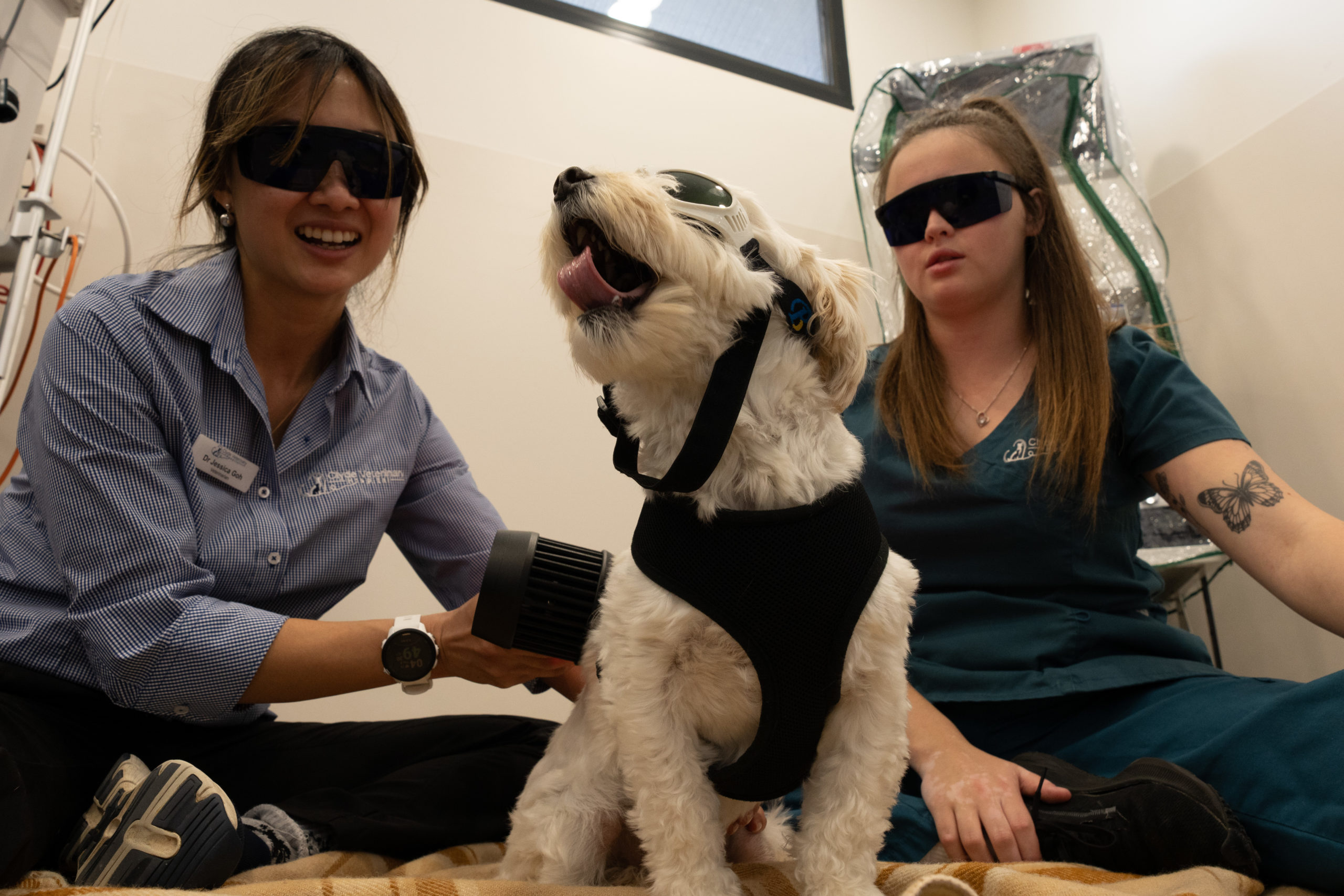
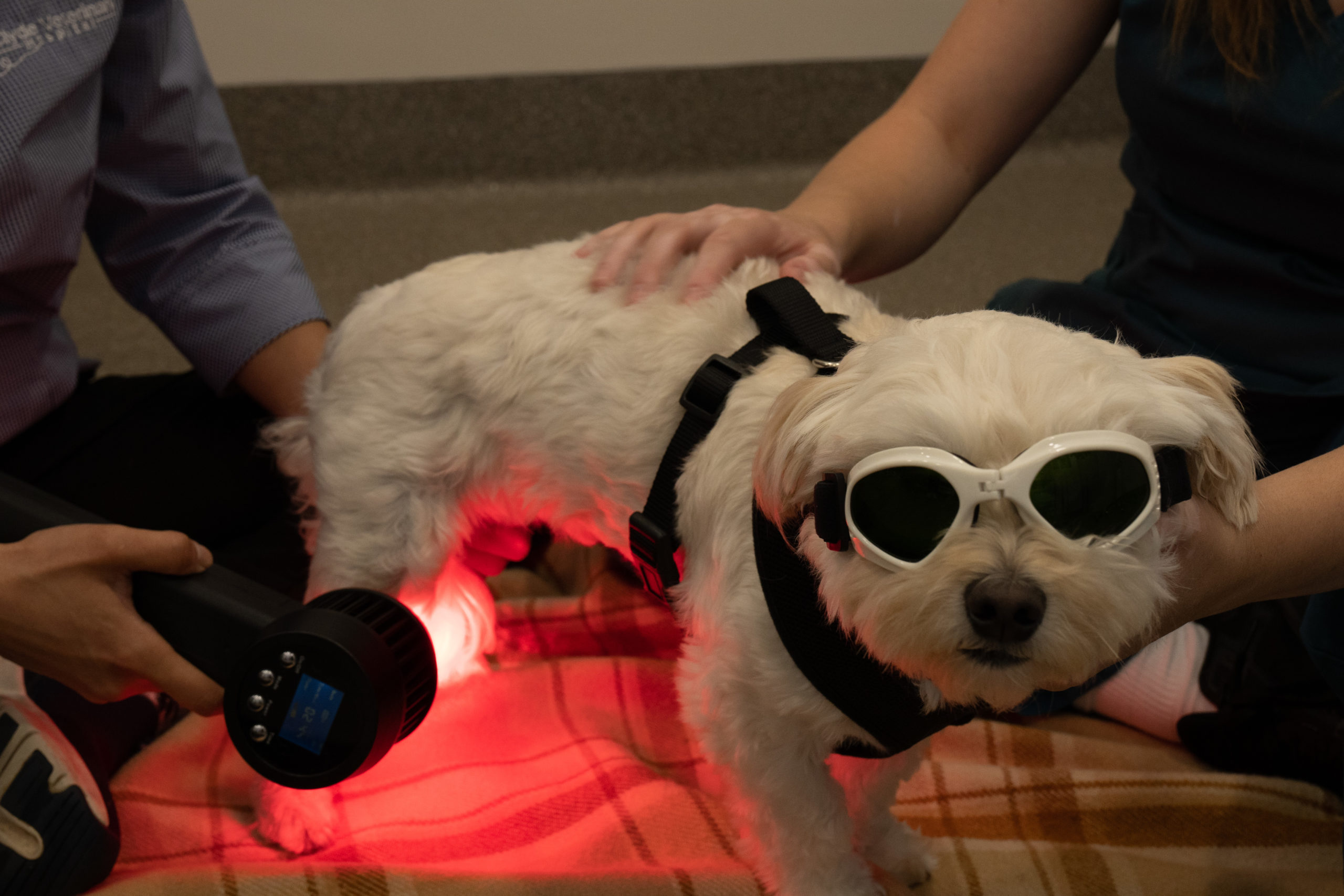
How are laser treatments administered?
Laser therapy is administered through a handheld laser wand that is waved slowly over the top of the affected or damaged area. The tissue is warmed up by the laser slightly, producing warmth that many animals find pleasant and relaxing. Usually, the sessions don’t take any longer than half an hour and, as it doesn’t require sedation, your pet can go home straight away.
Multiple sessions may be required to experience the full benefit of the treatment, and depends on the severity of the initial injury. Some conditions may require 4-6 weeks of treatment in order to experience the full therapeutic benefit. Our vet will work with you to develop a personalized treatment plan during your visit
How does laser therapy work?
On a cellular level, laser therapy works by stimulating the production and release of adenosine triphosphate, or ATP. This is a similar process to how plants produce energy using photosynthesis, by absorbing and converting light into chemical energy. ATP is able to act as a special type of signalling molecule within your pet’s body, stimulating healing, reducing inflammation and providing relief from pain.
Laser therapy can trigger several healthy responses, such as:
Increased healing speed
Release of tension in the muscles
Increased blood flow (vasodilation)
Reduction in inflammation
Is laser therapy safe for pets?
Laser therapy is very safe when used with the proper settings and treatment durations in mind. There are no risks involved if laser therapy is completed by a trained veterinarian.
Given that laser therapy is non–invasive and triggers the body’s natural healing process, there is absolutely nothing to worry about.
Will my pet benefit from laser therapy?
Laser therapy could be the solution for your pet if they’re suffering from many common medical conditions, such as:
Orthopaedic conditions Post-surgery pain
Neurological conditions
Tendon and ligament pain Arthritis
Laser therapy can be a particularly helpful option for animals who only have limited options for treatment. This can range from pets with kidney or liver complications who cannot process medication, to older pets who aren’t able to undergo surgery. It can also be a more financially viable option for some families who can’t afford expensive surgeries or medications.
Should I speak to my vet about laser therapy?
You don’t have to wait for your veterinarian to suggest laser therapy to have a conversation about the options available for your pet. Whether your pet has chronic pain or you want to help relieve muscle soreness, work with your veterinarian to discuss what laser therapy plan is best for your pet, because every animal is different.
A few examples of why you may want laser therapy for your animal include:
Your pet just had an orthopedic surgery and you want to help alleviate pain and inflammation in the acute phase.
Your pet isn’t improving or has had slow recovery from any orthopedic surgeries whether it be poor wound healing, pain, muscle soreness or other soft tissue compensatory issues.
You have an older pet with arthritis.
Lameness from overuse injury, repetitive or chronic injuries of the body that may have developed over time or your pet has sustained a traumatic event such as a fight, fall, or jump.
The best thing to do is to talk to your vet about what is going on with your pet and work with them to come up with the best plan going forward.
Does my pet need an exam before they are approved for laser?
At Clyde Veterinary Hospital, we prefer to have an examination done before going ahead with pet laser therapy to ensure that your pet is getting the best treatment possible. Provided your pet has had an exam completed within the last year, we are able to organize a laser therapy plan to help with whatever concerns you have for your beloved animal.
If you think your pet would benefit from laser therapy, the team at Clyde Veterinary Hospital is here to help. Give us a call on (03) 9052 3200 for more information, or book an appointment with one of our veterinarians to discuss a laser therapy plan for your pet.
World Class Facility
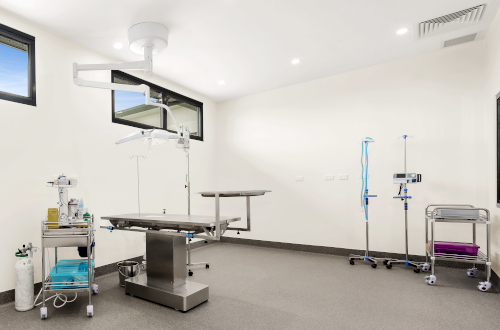
Huge Range of Surgeries

Easy Finance Available
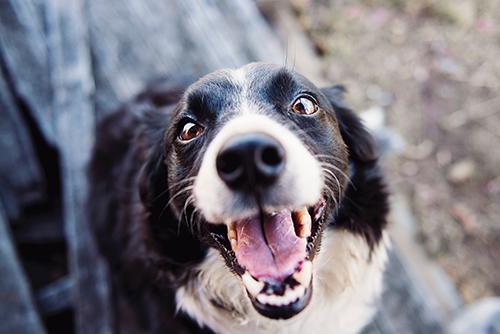
Book Securely Online
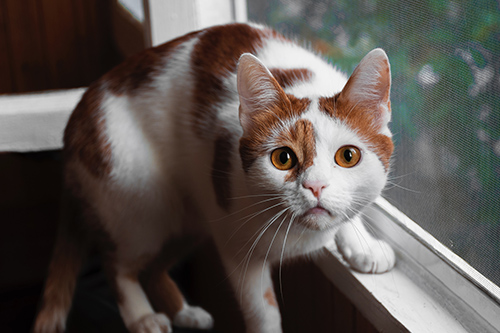
Our state of the art, purpose-built veterinary hospital has world’s best practice sterilisation procedures, with all the very latest state of the art equipment, and positive pressure air conditioning installed, making for the most sterile surgical environment possible.
Our special isolation ward, accessed directly from the hospital carpark also ensures any risk of secondary contagion from other animals is kept to a minimum during their stay at Clyde vet.
Dr. Mitry’s extensive surgical experience means that we are able to offer a comprehensive range of common surgeries for dogs and cats, rabbits and other rodents as well as desexing surgery in ferrets.
We perform dog and cat surgeries in both bone and soft tissue for the eye, ear, nose and throat, knee, intestines, urinary tract, reproductive organs, anal glands, perform lump removals and treat hernias, gastrotomy, entropians and much much more. See the FAQ section below for a complete list of common surgeries offered.
Clyde Veterinary Hospital is a member of the VetPay network of clinics, meaning you have several easy and affordable payment plans available if you need them.
Visit the VetPay website for more information.
Clyde Veterinary Hospital offers an initial surgical consultation to discuss the surgery and the required postoperative care – another reason to choose southeast Melbourne’s most state of the art animal hospital for your precious companions’ delicate surgery.
FAQs
What Dog and Cat Surgeries Do You Perform?
GENERAL SURGERIES
Dental Extractions and Fillings (CLICK HERE for more information on our dental services)
Desexing (CLICK HERE for more information on our desexing services)
Exploratory Surgery and biopsy
Knee Surgery
Orthopedic Surgery & Common Fractures
Ear, Eye, Nose and Throat Surgery
Urinary Tract, Vulva, Reproductive Organs & Desexing Surgery
SURGERIES FOR THESE JOINT CONDITIONS
ACL/CCL – Anterior or Cranial Cruciate Ligament in dogs
Patellar Luxation (kneecap dislocation) in dogs
Femoral Head Ostectomy for hip and arthritis issues
Tibial Tuberosity Avulsion (TTA)
SURGERIES FOR THESE OTHER CONDITIONS
Surgery for lump removal and Biopsy
Soft palate resectomy surgery/stenotic nares
Entropian repair surgery (eyelids) & Cherry Eye
Urinary blockages
Hernia
Emergency spleenectomy
Gastropexy/bloat in dogs
Gastrotomy
Small intestine anastomosis (Foreign Bodies)
Anal glands resectomy(removal)
AND MUCH MORE
If you don’t see your dog or cat’s condition of interest listed, contact Clyde Vet today (see bottom of page for details), and we will let you know if we offer a surgical treatment.
What Other Small Animal Surgeries Do You Perform?
We perform desexing surgeries in rabbits, guinea pigs and ferrets. We also cater for rabbit dental and gastrotomy surgery and lump removal in rats and abscess surgery in guinea pigs and others.



